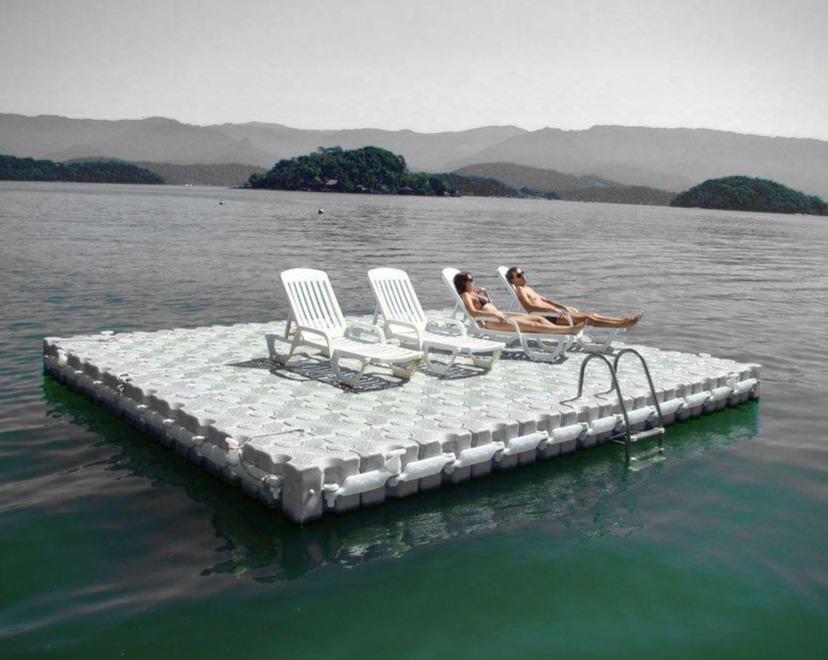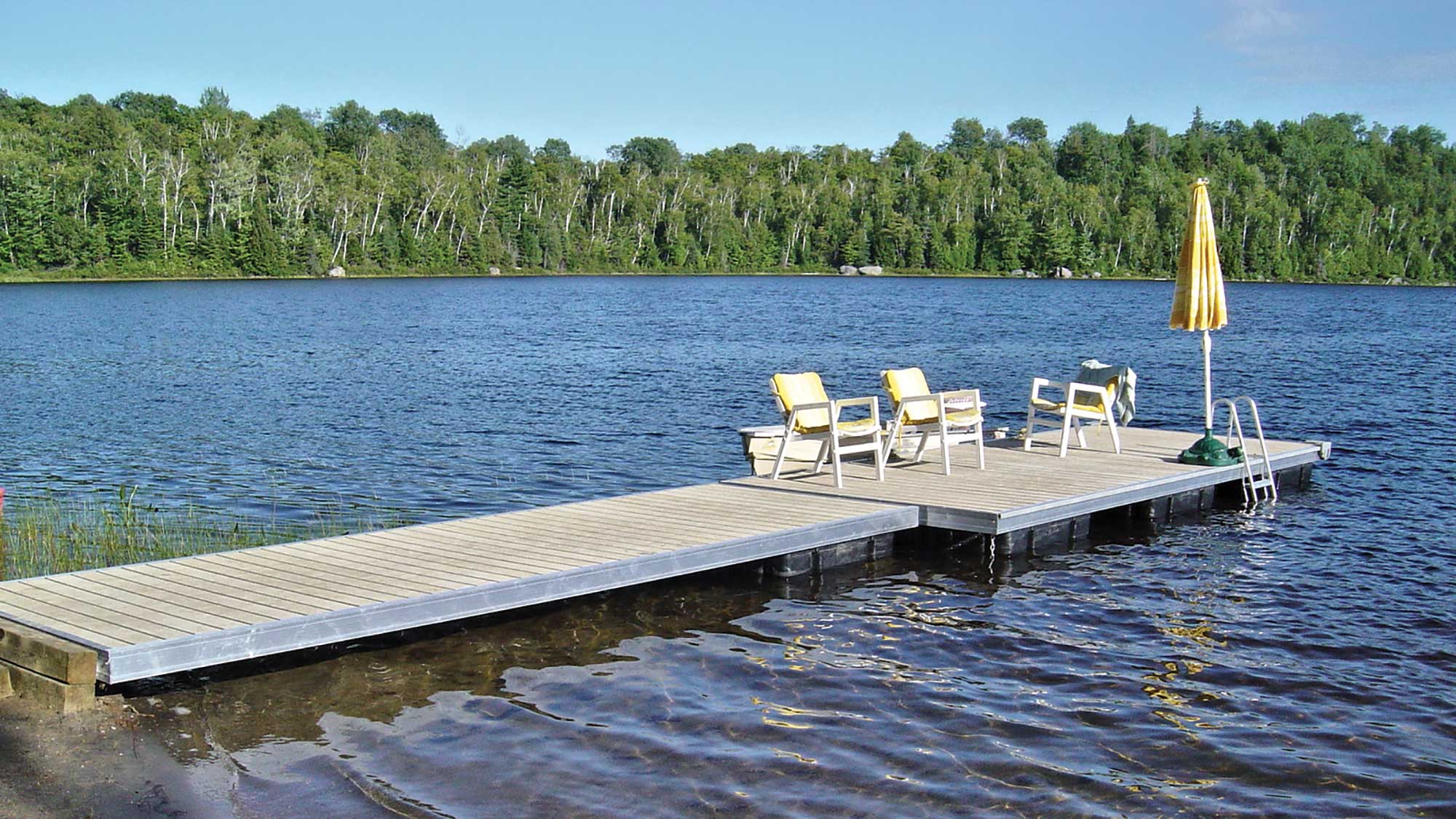Find the Perfect Floating Dock Builder to Bring Your Waterfront Vision to Life
Find the Perfect Floating Dock Builder to Bring Your Waterfront Vision to Life
Blog Article
Floating Docks: The Perfect Selection for Versatile Water Access
Floating docks present an engaging remedy for a range of water accessibility requires, using adaptability that goes beyond standard mooring choices. Their capability to adapt to fluctuating water levels while making sure security and safety and security makes them particularly beneficial for both business and entertainment applications. The modular nature of floating docks assists in personalization, providing to certain demands. Nevertheless, the subtleties of installment and upkeep, together with the array of applications, call for a closer assessment to totally appreciate their possible advantages and ramifications for waterway access techniques.
Benefits of Floating Docks
Floating docks offer numerous benefits that improve water access for numerous applications. Their capability to fall and climb with altering water degrees makes them especially useful in settings with varying trends or seasonal variations. This adaptability makes sure that vessels can easily moor without worry for the water's depth, providing a dependable system for recreational, industrial, and commercial uses.
Furthermore, floating docks are usually constructed from resilient products that stand up to corrosion, making them appropriate for long-lasting usage in aquatic settings. Their installation is normally much less intrusive than standard set docks, reducing the environmental effect and facilitating quicker deployment (floating dock builder). This versatility permits for easier moving or reconfiguration according to user requirements or environmental modifications
Safety and security is an additional vital advantage; floating docks can offer secure access for individuals disembarking or boarding from boats and reduce the threat of crashes associated with unstable surface areas. In addition, they can be designed to accommodate a selection of devices, such as cleats and fenders, enhancing functionality. In general, floating docks represent an effective service for boosting water access throughout varied fields while promoting safety and ecological sustainability.

Types of Floating Docks
Different kinds of floating docks provide to different requirements and settings, each developed with specific functions to maximize functionality. One of the most usual types include modular docks, which include interlocking sections that permit simple customization and growth. These docks are excellent for leisure usage, as they can be tailored to fit different watercraft dimensions and water conditions.
Another prominent alternative is the fixed floating dock, which continues to be anchored in place yet drifts with transforming water degrees. floating docks. This type is specifically fit for areas with minimal tidal fluctuations, giving stable access for fishing or swimming. Furthermore, there are drive-on docks, which feature a sloped design that enables boats to quickly drive on and off, making them ideal for individual boat and smaller sized vessels
For business applications, sturdy floating docks are available, created from reinforced products to withstand significant loads and severe aquatic atmospheres. Finally, environmentally friendly floating docks use lasting materials and styles to decrease ecological impact, usually including attributes like vegetation to support local wildlife. Comprehending the various kinds of floating docks guarantees that users can pick one of the most proper service for their specific needs.
Setup Process Review
An effective setup of floating docks needs mindful preparation and attention to information to guarantee ideal performance and safety and security. The initial action includes assessing the site problems, including water deepness, current, and prospective obstacles. This analysis informs the choice of the suitable dock products and layout tailored to the details atmosphere.
Following, obtaining needed permits is essential, as many territories have policies pertaining to construction on water bodies. As soon as permissions are protected, the installment can proceed. Begin by preparing the structure, which might involve anchoring systems or pilings customized to the dock type and regional problems.
Adhering to the foundation configuration, construct the dock areas according to manufacturer requirements. Guarantee that all elements are firmly attached and aligned to endure environmental anxieties. Placement the dock in the designated area, ensuring it is level and steady.

Upkeep Tips and Ideal Practices
After the installation process is full, recurring maintenance plays an important role in making certain straight from the source the long life and capability of floating docks. Normal assessments must be carried out to recognize any type of signs of wear, damage, or damage - floating docks. Examine for any type of loosened fittings, splits, or separation in the dock areas, as these can compromise structural integrity
Cleaning up the dock is important to remove debris, algae, and various other build-up that can influence its appearance and safety. Make use of a gentle stress wash regularly to maintain tidiness without creating damage to the surface area. Furthermore, using a safety sealant every couple of years can assist improve long life and resist ecological wear.
Take notice of the mooring lines and supports, guaranteeing they are complimentary and safe and secure from corrosion. Change any kind of degraded elements without delay to prevent threats. Seasonal adjustments may additionally be necessary; during extreme climate problems, repositioning or strengthening the dock can avoid damages.
Applications for Floating Docks
Floating docks offer a plethora of applications, providing to both recreational and commercial requirements. In entertainment setups, they give seamless access to waterways for activities such as boating, fishing, and swimming. Their flexible nature enables installment in varying water degrees, guaranteeing secure and secure access regardless of tidal fluctuations.
Commercially, floating docks are important for marinas and waterside companies. They facilitate the docking of vessels, enabling efficient loading and discharging of goods. Their modular design allows for very easy development or reconfiguration to suit altering company demands, making them perfect for boat services, scenic tour procedures, or fishing charters.
Furthermore, floating docks are used in environmental applications such as water research and environment reconstruction. They look at these guys can offer as platforms for clinical researches, monitoring water top quality, or carrying out wildlife studies without troubling sensitive communities.
In industrial contexts, floating docks are employed in building and construction jobs, offering accessibility to hard-to-reach locations for equipment and workers. Their flexibility, sturdiness, and minimal influence on the setting make them an optimal selection for a wide variety of applications, enhancing both capability and availability in numerous water-based environments.
Verdict
In conclusion, floating docks represent an ideal option for varied water access needs, owing to their adaptability, i thought about this sturdiness, and modular style. Floating docks offer as an important asset for entertainment, business, and ecological tasks, ensuring reputable access to waterways and promoting lasting practices in aquatic environments.
Floating docks present a compelling service for a variety of water accessibility requires, supplying convenience that goes beyond typical mooring options.Floating docks offer many advantages that boost water accessibility for numerous applications. On the whole, floating docks represent an effective option for boosting water accessibility throughout diverse industries while promoting safety and security and ecological sustainability.
One more popular option is the fixed floating dock, which stays anchored in area however floats with changing water levels.In conclusion, floating docks stand for an ideal service for diverse water accessibility needs, owing to their adaptability, toughness, and modular style.
Report this page